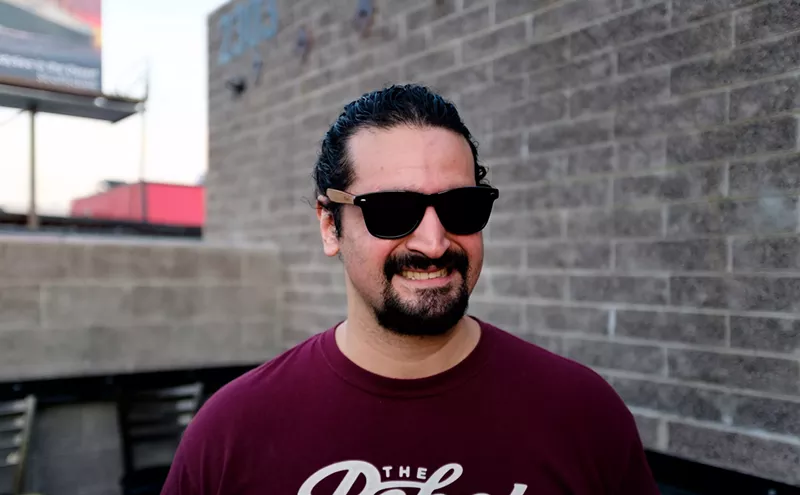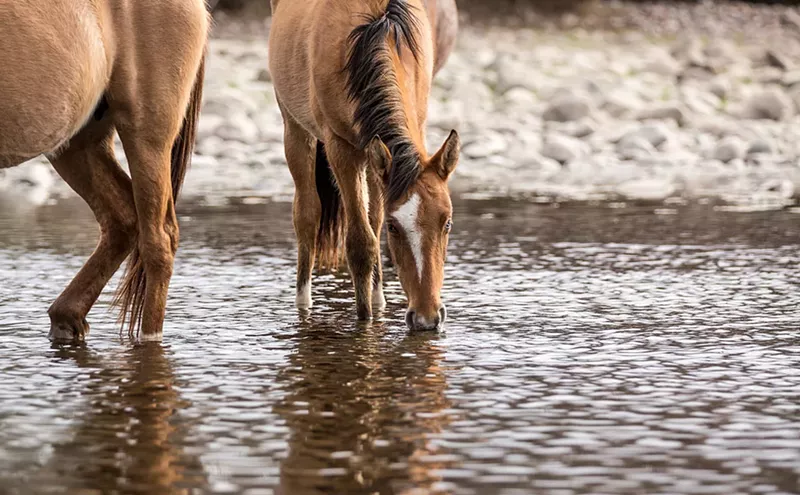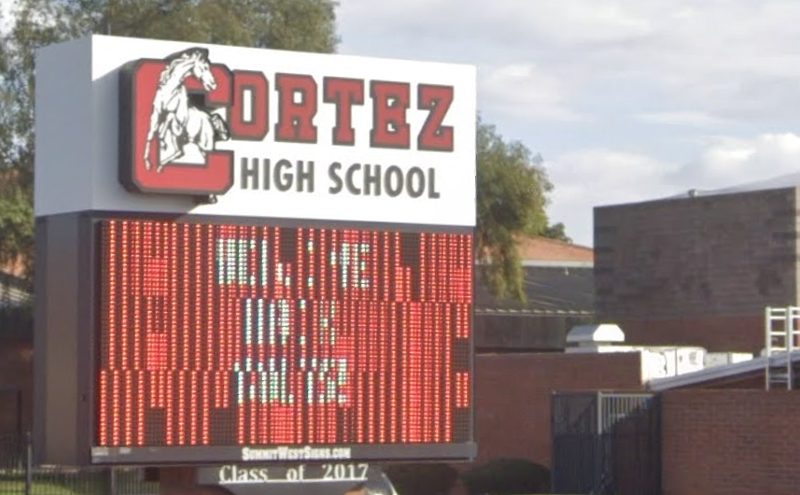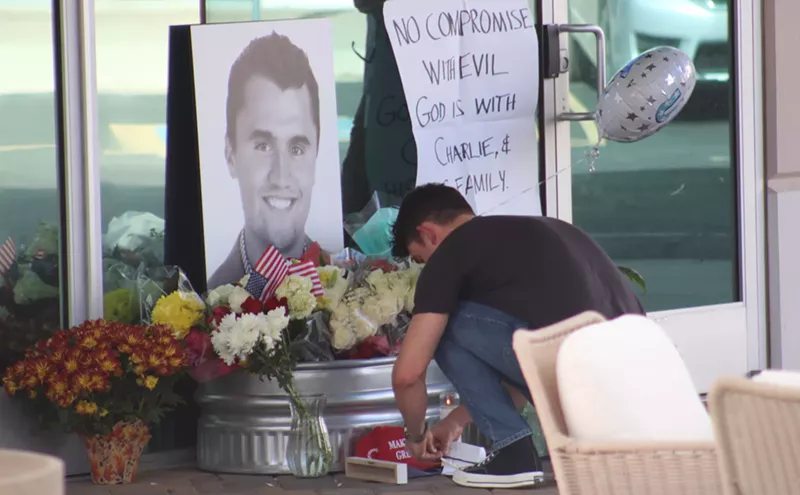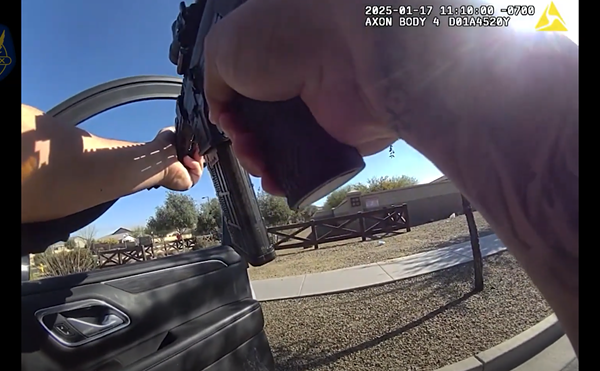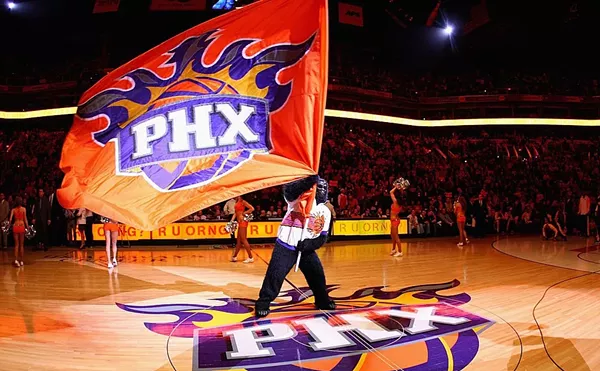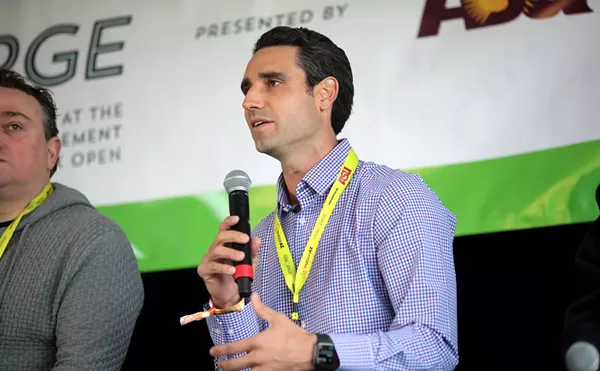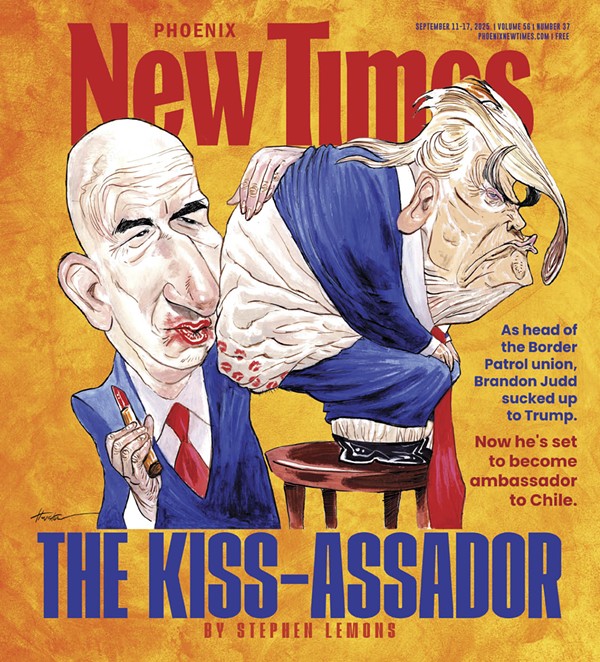John Brakey, co-founder of AUDIT-AZ (Americans United for Democracy, Integrity, and Transparency in Elections) filed a lawsuit in Maricopa County Superior Court against election officials, both accusing them of misconduct and demanding a partial recount of ballots.
As New Times has written previously, Maricopa County’s attempt to save money by drastically cutting the number of polling stations for the March 22 election totally backfired. Thousands waited more than two hours to vote – some as long as five hours – and the lines at some polling stations still were wrapped around the block as the first results trickled in at 8 p.m.
What’s more, hundreds of people showed up to the polls assuming they were registered as a voter in one party only to be told they were weren’t, and therefore they could only fill out a provisional ballot – according to Dianne Post who worked at a polling station in Phoenix and filed an affidavit in Brakey’s lawsuit, this disproportionally happened to Democratic voters.
The election debacle prompted widespread national criticism, and as allegations of voter suppression began getting thrown around, public election officials accepted blame and promised this would never happen again.
But for those like Brakey – who told New Times that in his estimation, Arizona is one of the most corrupt states in the country – promises about future elections fall flat. He wants Secretary of State Michele Reagan to nullify her certification of the March 22 results, and he wants counties around the state to be randomly subjected to recounts.
Following those recounts, should enough precincts come up with results different from what they reported, the entire state would be subject to a re-vote.
Brakey’s prescription might sound draconian, but he thinks that when the election data is analyzed, the problem actually is larger than many realize.
According to his lawsuit, the problems “with both voter suppression and election procedures” were so egregious that it could have cost 150,000 people in Maricopa County their right to vote and “altered the results of both the Democratic and Republican primaries.”
To 150,000 people, it's no laughing matter, he adds.
He came to that figure by looking at the average differences in voter turnout rates between this year’s primary and the primary in 2008 for each county. Almost every single county besides Maricopa had a substantially higher turn out – the one other exception being La Paz County, but the difference was 377 fewer voters than in 2008.
Maricopa had a 50.22 percent voter turnout rate in 2008, and had the county’s 2016 voter turnout matched the general increase of other counties, the turnout should have been 62.5 percent (or approximately 150,000 more people).
It’s not a precise science to be sure, Brakey acknowledges, but given that the “probability of the 12.4 percent difference between Maricopa’s projected voter turnout and the official 50.2 percent turnout is approximately 1 in 6 trillion,” Brakey thinks this all merits a closer look.
That plus an affidavit signed by James “Jim” March Simpson, “a computer systems tech and systems administrator” with past experience serving on the Pima County Election Integrity Commission and testifying as an expert witness in other election integrity lawsuits – he is also a member of AUDIT-AZ, it should be noted – alleges that the Arizona PPE could easily have been hacked and the results on voter-registration forms manipulated.
“I have been following the recent developments and controversies surrounding the Arizona primary election, especially on the Democratic side, [and] a consistent theme is that people are complaining that their voter-registration record was either obliterated or changed from ‘Democrat’ to something else,” he writes.
Simpson goes on to explain how and why Arizona’s centralized vote-registration system could have been hacked – apparently hackers with the Anonymous Collective did it for fun and to prove it could happen after the election, too.
So bottom line, he writes, “We have strong reason to suspect something went wrong with the voter-registration data … and there are easy ways to determine via proper discovery [without the risk of further compromise]whether or not this class of attack actually occurred.”
Brakey, pre-empting any skepticism, says, “Listen, I’ve been doing this [in Arizona] for 12 years. I’m not a conspiracy theorist, I’m a conspiracy fact-ist.”
His point being that given past examples of sketchy voting practices in the state and the relative ease with which counties could carry out a partial recount to check for fraud (both electronically and manually), it’s worth checking to see if there was any “hanky-panky” in the election.“Elections aren’t any good unless they’re verifiable."
tweet this
“Elections aren’t any good unless they’re verifiable,” he adds.
The lawsuit names Secretary of State Michele Reagan, Maricopa County Recorder Helen Purcell, and the boards of supervisors of all 15 Arizona counties as defendants.
A spokesman for the Secretary of State’s office wrote in an e-mail that the “office is reviewing the lawsuit while Secretary Reagan continues her review of the voter-registration database and issues related to frustration at the polls.”



